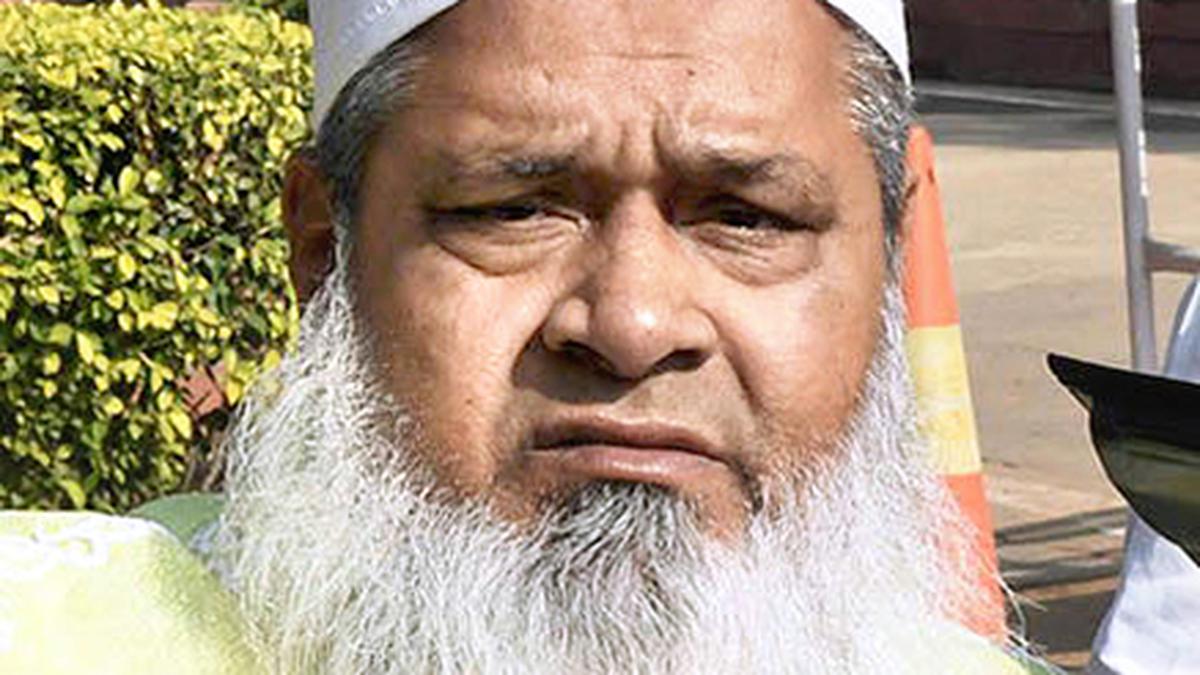
Assam Opposition parties criticise CM’s ‘Miya’ remark
The Hindu
War of words between political opponents in Guwahati over spiralling veggie prices. CM blames 'Miyas', Opposition parties accuse BJP & AIUDF of communal politics. AIUDF chief says 'Miyas' hurt by CM's comment. Congress, Raijor Dal & AAP allege BJP using communal politics to hide failures. CM urges Assamese to start businesses.
Spiralling vegetable prices in Assam’s largest city Guwahati have triggered a war of words between political opponents, with Chief Minister Himanta Biswa Sarma’s blaming ‘Miyas’ for the escalating rates drawing sharp reactions from Opposition parties.
While AIUDF chief Badruddin Ajmal said ‘Miyas’ have been ‘hurt’ by the CM’s comment, Congress and other Opposition parties sniffed collusion between the BJP and the AIUDF in ‘communal politics’ ahead of next year’s Lok Sabha elections.
Mr. Sarma, while responding to reporters’ questions on high price of veggies in Guwahati, had said, "Vegetables are not priced so high in villages. Here the Miya vendors charge us more. Had it been Assamese vendors selling vegetables, they wouldn’t have fleeced their own people."
"I will clear all the footpaths of Guwahati and I urge our Assamese people to come forward and start their businesses," he added.
Miya is originally a pejorative term used for Bengali-speaking Muslims in Assam. In recent years, activists from the community have started adopting this term in a gesture of defiance.
Reacting to Mr. Sarma’s statement, Mr. Ajmal said such words are unbecoming of a Chief Minister, who is the head of a State, and the community has been ‘feeling hurt and offended’.
"This is creating a communal divide. If it triggers any incident, the government and Himanta Biswa Sarma will be responsible for it," the Lok Sabha MP added.

“Writing, in general, is a very solitary process,” says Yauvanika Chopra, Associate Director at The New India Foundation (NIF), which, earlier this year, announced the 12th edition of its NIF Book Fellowships for research and scholarship about Indian history after Independence. While authors, in general, are built for it, it can still get very lonely, says Chopra, pointing out that the fellowship’s community support is as valuable as the monetary benefits it offers. “There is a solid community of NIF fellows, trustees, language experts, jury members, all of whom are incredibly competent,” she says. “They really help make authors feel supported from manuscript to publication, so you never feel like you’re struggling through isolation.”

Several principals of government and private schools in Delhi on Tuesday said the Directorate of Education (DoE) circular from a day earlier, directing schools to conduct classes in ‘hybrid’ mode, had caused confusion regarding day-to-day operations as they did not know how many students would return to school from Wednesday and how would teachers instruct in two modes — online and in person — at once. The DoE circular on Monday had also stated that the option to “exercise online mode of education, wherever available, shall vest with the students and their guardians”. Several schoolteachers also expressed confusion regarding the DoE order. A government schoolteacher said he was unsure of how to cope with the resumption of physical classes, given that the order directing government offices to ensure that 50% of the employees work from home is still in place. On Monday, the Commission for Air Quality Management in the National Capital Region and Adjoining Areas (CAQM) had, on the orders of the Supreme Court, directed schools in Delhi-NCR to shift classes to the hybrid mode, following which the DoE had issued the circular. The court had urged the Centre’s pollution watchdog to consider restarting physical classes due to many students missing out on the mid-day meals and lacking the necessary means to attend classes online. The CAQM had, on November 20, asked schools in Delhi-NCR to shift to the online mode of teaching.









